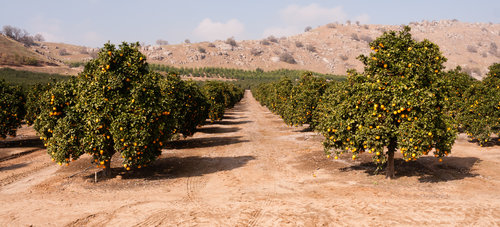Publications
Sustainability

Environmental sustainability concerns are rising on the public agenda and are becoming more and more relevant to the consumer. As a truly global business, the EU fruit juice and nectars industry is aware of the important role and responsibility it has in this matter and is engaging with it proactively.
In the case of fruit juices and nectars there are considerable challenges as most European countries do not have sufficient (domestic) fruit production or no production at all for specific types of fruit, such as exotic/tropical fruits. In addition, fruits are inherently seasonal, creating thus the challenge of all-year-round supply.
Further improvements in emissions and energy consumption throughout the supply chain and across all product formats will remain essential. In addition, producers are aware that reduction in water use is paramount. This is the ongoing objective of many European fruit juice and nectar producers who are cutting the amount of water used in the production phase and applying systems for water re-use.
Fruit juice and nectar producers have sought to provide the most environmentally friendly packaging available, which has in turn been readily accepted by consumers. Packaging innovation is even getting ahead of developments in recycling, which delivers more environmentally efficient options, without compromising food safety and food quality.
Although there have been proposals from different European bodies for a standardised method of carbon footprint assessment (“eco-footprint”), this has not materialised as yet. All players in the fruit juice and nectar industry would like to see a uniform assessment method across all 27 countries to assist with carbon footprint measurement. With a full life cycle analysis, the agreed methodology should support the industry’s carbon reduction goals, without creating more legally binding and onerous labelling requirements.
The European Fruit Juice Industry is committed to taking on the responsibility for ensuring that its operations positively impact society and the environment at large. There are a number of AIJN initiatives that prove this commitment.
The main one is the development of the Fruit Juice CSR Platform (www.juicecsr.eu), initially supported and co-funded by the European Commission. This Platform aims to increase an understanding of corporate social responsibility within the fruit juice industry as well as share and promote successful CSR initiatives and provide an opportunity to build a network on CSR within the industry. Furthermore, based on the 6 CSR Principles adopted by the Platform, it is the aim to establish joint guidelines based on these principles incorporating all levels of the juice supply chain, and establish a joint monitoring framework to measure and report progress. This is to be done through collaboration with all partners in the value chain through projects initiated through specific country-crop working groups. Read more
In addition to this, an internal AIJN CSR expert group composed of CSR and sustainability experts from leading juice companies has recently been set up. This group currently works under the direct mandate of the AIJN Executive Board on CSR matters of importance and urgency for the sector.
The second main initiative is the revision of the Code of Conduct which is based on the Six Fruit Juice CSR Principles of the CSR Sector Roadmap (based on the recently developed United Nations Global Compact Food and Agriculture Business Principles (FABs)) and the former SGF/IRMA Code of Conduct. Furthermore, it is founded on the basis of general principles contained in the International Bill of Human Rights, fundamental ILO Conventions, relevant United Nations Conventions and Guidelines, SAI Farm Sustainability Assessment and other relevant internationally recognised standards.
The purpose of this Code of Conduct is to ensure that all players in the fruit juice value chain operate in accordance with internationally recognised minimum standards on human rights, labour and environment. The Code applies to all companies involved in production of fruit juices, from producers of raw materials to producers of consumer goods.
